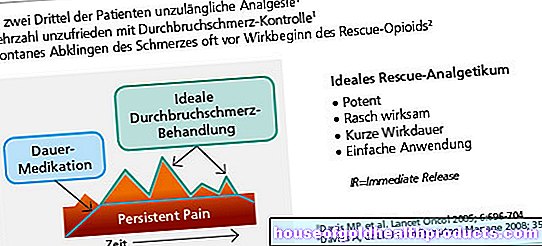Aspirin Effect
All content is checked by medical journalists.Aspirin Effect is a preparation that helps with pain and fever. This medication is a granule that can be taken without water. Here you will find all information about Aspirin Effect.
This active ingredient is in Aspirin Effect
The main ingredient in Aspirin Effect is acetylsalicylic acid (ASA). When taken by mouth, it is completely absorbed by the body. The active substance salicylic acid is created through the breakdown of ASA. It belongs to the group of drugs called pain relievers and anti-inflammatory drugs (NSAIDs). The drug has anti-inflammatory, antipyretic and blood-thinning effects. Aspirin Effect inhibits two enzymes (cyclooxygenases) that are responsible for the formation of inflammatory messengers and blood platelets. Aspirin Effect is distributed throughout the body via the blood, later broken down in the liver and excreted via the kidneys.
When is Aspirin Effect used?
Typical areas of application for Aspirin Effect are:
- headache
- fever
- Cold symptoms
- Joint pain
- Toothache (not before a visit to the dentist)
What are the side effects of the Aspirin Effect?
Common side effects include digestive tract discomfort such as heartburn, nausea, vomiting, and abdominal pain.
Occasionally, hypersensitivity reactions of the skin occur (reddening of the skin, itching).
Side effects in the form of gastric ulcers and gastric mucosal inflammation can rarely occur. Symptoms such as a drop in blood pressure, shortness of breath, liver and gallbladder diseases are also possible.
Very rarely there may be bleeding from the nose or gums, increased liver values, diseases of the kidney and urinary tract and kidney dysfunction.
You should keep this in mind when using Aspirin Effect
The maximum daily dose of Aspirin Effect is 3 grams for adolescents and adults, and 1.5 grams for children up to 14 years of age. If the dosage is too high, Aspirin Effect can cause serious side effects and even death in children and elderly patients. With moderate overdose symptoms such as hearing impairment, sweating, nausea, vomiting and dizziness occur. Severe poisoning becomes noticeable through fever, hyperventilation, excessive acidity of the body and respiratory failure. Emergency treatment is essential here.
The usual dose for adults and adolescents aged 14 years and over is one or two granule sachets (500 mg to 1000 mg) three times a day. To avoid irritation of the gastric mucosa, Aspirin Effect should not be taken on an empty stomach and should be four to eight hours between applications. The duration of use should not be longer than four days.
There are also groups of patients who should not use the drug or only use it after consulting the attending physician.
Aspirin Effect: Contraindications
The drug must not be taken if allergies to the respective ingredients are known.
In addition, Aspirin Effect must not be taken if:
- acute gastric and intestinal ulcers
- increased tendency to bleed
- acute liver and kidney failure
- severe heart failure
- Pregnancy (last third)
- Past asthma attacks from taking salicylates
The drug must not be taken with the simultaneous use of the following drugs:
- Methotrexate
- Warfarin (e.g. for blood clots)
- Cyclosorin
- Diuretics, ACE inhibitors (e.g. for high blood pressure)
- Steroids and anti-inflammatories (e.g. for rheumatism)
Caution when taking Aspirin Effect applies to:
- hay fever
- not adjusted high blood pressure
- simultaneous use of drugs that also have blood-thinning effects (e.g. Marcumar)
- Simultaneous use of drugs such as: digoxin, antidiabetic drugs, valproic acid, uric acid-releasing gout agents
- recurrent stomach or intestinal ulcers
- impaired liver and kidney function
Particular caution is required when using Aspirin Effect for the treatment of febrile illnesses in children. The drug may only be taken after consulting a doctor, as there is a risk of developing life-threatening Reye's syndrome.
The intake of Aspirin Effect with alcohol should be avoided as it often leads to damage to the gastric mucosa (gastric mucosal inflammation).
Aspirin Effect should be avoided in upcoming operations and another pain reliever that does not have blood-thinning properties should be used.
Aspirin Effect: Pregnancy and Breastfeeding
Aspirin Effect should not be used during pregnancy. Taking it in the first six months of pregnancy can cause undesirable developments in the unborn child. The drug should not be taken in the last trimester of pregnancy, as it can damage the kidneys in the fetus and inhibit labor and prolong bleeding in the mother.
So far, no harmful effects on the child are known during breastfeeding if the mother takes Aspirin Effect for a short time and in small amounts. However, the active ingredient can also act on the child through breast milk and damage it. Treatment with Aspirin Effect is only recommended after consulting a doctor.
How to get Aspirin Effect
Aspirin Effect is available without a prescription in all pharmacies. However, a consultation with a doctor or pharmacist is recommended for patients who regularly take other medications, pregnant women, adolescents and children.
Complete information on this drug
Here you can find the complete information about the drug as a download (PDF)
Tags: symptoms drugs dental care





























